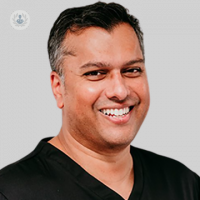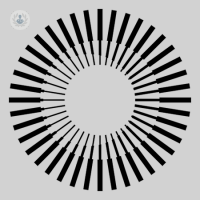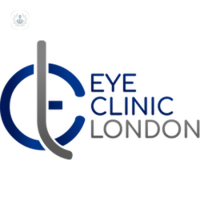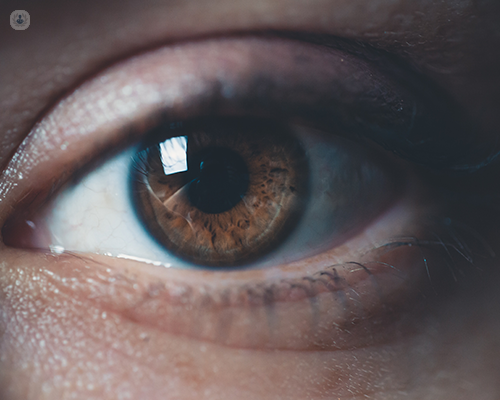
What are corneal diseases?
Corneal diseases are a group of serious conditions in which the cornea may become clouded, distorted or scarred and can even lead to blindness. The cornea is the clear layer on your eyeball which allows the passage of light into the eye, and this is largely responsible for focusing your vision. Corneal diseases are treated by ophthalmologists.
The most common corneal diseases are:
- Corneal dystrophy, of which there are more than 20 types
- Keratoconus
- Fuch’s dystrophy
- Corneal ulcer
- Keratitis
Prognosis
Eye diseases are generally degenerative and progressively get worse over time unless treated. This can be in the form of surgical procedures or non-surgical, depending on the corneal disease.
Symptoms
Symptoms can vary between conditions and between individuals. However, seek medical advice if you present with the following:
- Vision becomes cloudy and/or distorted
- Vision becomes blurry
- The cornea has become scarred
- Eye irritation/pain
- Light sensitivity
- Red eyes
Medical tests to diagnose corneal diseases
Your eye specialist will perform an eye examination which involves taking your medical history and symptoms, having your eye pressure measured as well as the accuracy of your vision and more. Depending on your symptoms and examination results, your eye specialist may refer you to have one or several of a variety of eye tests, such as a corneal topography (a computerised test that creates a 3D map of the curve of your cornea) and ultrasonography (an ultrasound for your eye).
What are the causes of corneal diseases?
Some corneal diseases, like corneal dystrophies, run in families. The risk of developing corneal diseases can increase with age, eye trauma and exposure to chemicals.
Treatments for corneal diseases
Treatment may involve a surgical procedure, such as laser surgery or corneal transplant. Sometimes, when a suitable donor cornea can’t be found, an artificial cornea may be used in treatment. Non-surgical treatments may be provided such as specific lenses and/or consistent eye tests to monitor the condition. Overall, treatment depends on the condition and on each individual – your specialist will personalise your treatment.
02-21-2014 07-25-2023
Corneal diseases
Mr Paul Tomlins - Ophthalmology
Created on: 02-21-2014
Updated on: 07-25-2023
Edited by: Kate Forristal

What are corneal diseases?
Corneal diseases are a group of serious conditions in which the cornea may become clouded, distorted or scarred and can even lead to blindness. The cornea is the clear layer on your eyeball which allows the passage of light into the eye, and this is largely responsible for focusing your vision. Corneal diseases are treated by ophthalmologists.
The most common corneal diseases are:
- Corneal dystrophy, of which there are more than 20 types
- Keratoconus
- Fuch’s dystrophy
- Corneal ulcer
- Keratitis
Prognosis
Eye diseases are generally degenerative and progressively get worse over time unless treated. This can be in the form of surgical procedures or non-surgical, depending on the corneal disease.
Symptoms
Symptoms can vary between conditions and between individuals. However, seek medical advice if you present with the following:
- Vision becomes cloudy and/or distorted
- Vision becomes blurry
- The cornea has become scarred
- Eye irritation/pain
- Light sensitivity
- Red eyes
Medical tests to diagnose corneal diseases
Your eye specialist will perform an eye examination which involves taking your medical history and symptoms, having your eye pressure measured as well as the accuracy of your vision and more. Depending on your symptoms and examination results, your eye specialist may refer you to have one or several of a variety of eye tests, such as a corneal topography (a computerised test that creates a 3D map of the curve of your cornea) and ultrasonography (an ultrasound for your eye).
What are the causes of corneal diseases?
Some corneal diseases, like corneal dystrophies, run in families. The risk of developing corneal diseases can increase with age, eye trauma and exposure to chemicals.
Treatments for corneal diseases
Treatment may involve a surgical procedure, such as laser surgery or corneal transplant. Sometimes, when a suitable donor cornea can’t be found, an artificial cornea may be used in treatment. Non-surgical treatments may be provided such as specific lenses and/or consistent eye tests to monitor the condition. Overall, treatment depends on the condition and on each individual – your specialist will personalise your treatment.


How much do you know about Keratoconus?
By Mr Vincenzo Maurino
2024-12-14
We're raising awareness for World Keratoconus Day! Expert Vincenzo Maurino explains the keratoconus signs to watch out for, and how KC can be treated. See more
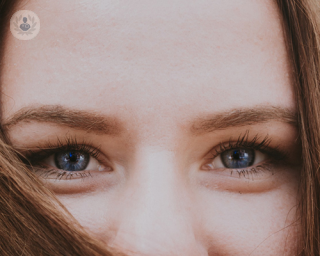

Corneal graft: which eye conditions affect the cornea?
By Mr Radwan Almousa
2024-12-03
The cornea is considered the strongest lens in the eye and any alteration with its clarity can have a significant effect on your vision. One of our top ophthalmologists Mr Radwan Almousa explains which conditions may affect the cornea and whether they can be replaced with transplantation. See more
Experts in Corneal diseases
-
Mr Rakesh Jayaswal
OphthalmologyExpert in:
- Cornea
- Cataracts
- Laser eye surgery
- Lens replacement (intraocular lenses)
- ICL implants
- Corneal diseases
-
Mr Michael Tappin
OphthalmologyExpert in:
- Cornea
- Cataracts
- Laser eye surgery
- Lens replacement (intraocular lenses)
- Corneal diseases
- Presbyopia
-
Mrs Dalia Said
OphthalmologyExpert in:
- Corneal diseases
- Refractive surgery
- Cataracts
- Dry eye
- Lens replacement (intraocular lenses)
- Keratoconus
-
Professor Harminder S Dua CBE
OphthalmologyExpert in:
- Corneal diseases
- Keratoconus
- Refractive surgery
- Lens replacement (intraocular lenses)
- Cataracts
- Dry eye
-
Mr Mrinal Rana
OphthalmologyExpert in:
- Cataracts
- Corneal diseases
- Keratoconus
- Pterygium and pinguecula
- Ocular hypertension
- Dry eye
- See all

Laser Vision
Laser Vision
Prema Compass Road North Harbour Business Park Portsmouth PO6 4RP
No existe teléfono en el centro.
By using the telephone number provided by TOP DOCTORS, you automatically agree to let us use your phone number for statistical and commercial purposes. For further information, read our Privacy Policy
Top Doctors

Eye Clinic London
Eye Clinic London
7 Devonshire St, London
No existe teléfono en el centro.
By using the telephone number provided by TOP DOCTORS, you automatically agree to let us use your phone number for statistical and commercial purposes. For further information, read our Privacy Policy
Top Doctors

Mount Alvernia Hospital - part of Circle Health Group
Mount Alvernia Hospital - part of Circle Health Group
Harvey Road, Guildford GU1 3LX
No existe teléfono en el centro.
By using the telephone number provided by TOP DOCTORS, you automatically agree to let us use your phone number for statistical and commercial purposes. For further information, read our Privacy Policy
Top Doctors
-
Laser Vision
Prema Compass Road North Harbour Business Park Portsmouth PO6 4RP, HavantExpert in:
- Cataracts
- Laser eye surgery
- ICL lens implants
- Ophthalmology
- Keratoconus
- Lens replacement
-
Eye Clinic London
7 Devonshire St, London, Central LondonExpert in:
- Cataracts
- Laser eye surgery
- Ophthalmology
- Pediatric Ophthalmology
- Dry eye
- Corneal transplant
-
Mount Alvernia Hospital - part of Circle Health Group
Harvey Road, Guildford GU1 3LX, GuildfordExpert in:
- Hip
- Cancer
- Cardiology
- General Surgery
- Orthopaedic surgery
- Orthopaedic spinal surgery
- See all
- Most viewed diseases, medical tests, and treatments
- Visual impairment
- Diabetic retinopathy
- Retina
- Presbyopia
- Nystagmus
- Myopia
- Hyperopia (farsightedness)
- Eye examination
- Blepharitis
- Astigmatism

